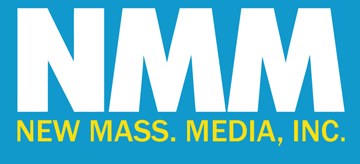Tribune Co. subsidiary CT1 Media has merged its three Connecticut alt-weeklies — Hartford Advocate, New Haven Advocate, and Fairfield County Weekly — with the entertainment weekly previously published by the daily Hartford Courant.
The Tribune Company has laid off New Mass. Media group publisher Joshua Mamis along with two graphic designers. The company publishes publishes the Fairfield County Weekly, Hartford Advocate, and New Haven Advocate.
That's what the Yale Daily News finds in a report on how three local news organizations are faring in the downturn. While the Advocate's "circulation is steady," as managing editor John Stoehr points out, publisher Joshua Mamis admits that the paper's page count has decreased. Mamis also notes that although the paper has lost some national advertisers, many local advertisers have remained loyal.
When a news website in Pasadena made headlines last year for its decision to outsource City Hall coverage to reporters in India, the group managing editor of the Hartford Advocate, New Haven Advocate and Fairfield County Weekly wondered if his three alt-weeklies could do the same thing. While John Adamian's idea started as a joke, it quickly led to an actual exercise in outsourcing journalism -- and the results are this week's papers, which have been mostly generated by Indian freelancers. The papers say the experiment proves that outsourcing a local newspaper is possible, but not recommended. "Call us old-school, but we think good, old-fashioned shoe-leather journalism is worth the price," the staff writes in an editors' note. "Outsourcing could certainly fill pages, probably very cheaply, but what's lost is the very essence of local newspapers: presence."
"What does this mean for the Advocates? Who the fuck knows? We're so low in the Tribune food chain that we're not even mentioned in the annual reports," writes Christopher Arnott, who spent 17 years as an Advocate staffer before going full-time freelance. "The Advocate's sucked it up before and [stayed] alive in hard times. Let's hope the corporation gives it the chance to do it again."
The embattled Tribune Company, which owns three AAN papers, has hired an investment bank and law firm in recent days to advise the company on a possible trip through Chapter 11 bankruptcy, according to the Wall Street Journal. Tribune owns the Fairfield County Weekly, Hartford Advocate and New Haven Advocate. Sources tell the Journal that a filing could come as early as this week. UPDATE (4:05 pm): The company did indeed file for bankruptcy protection today, and will stop making interest payments on $12 billion in debt as it attempts to restructure its loans, the Los Angeles Times reports.
To save costs in an ever-tightening economy, two of the three New Mass. Media papers will now share office space in New Haven. Staff members have been given laptops and cellphones and will seemingly be traveling in the Fairfield County area -- about 20 miles from New Haven -- quite a bit.
"A City Hall proposal to group news boxes together in new kiosks ran into a barrage of criticism from media representatives and elected officials Monday night at the Board of Aldermen's Legislation Committee, which tabled the proposal," the New Haven Independent reports. New Haven Advocate publisher Josh Mamis spoke at the meeting, telling the committee that the proposal's prioritization of daily papers over weeklies is a restriction of freedom of speech, according to the Independent. He also complained about the way the city handled the issue, claiming that he wasn't even aware of news rack problems in New Haven. "I've never fielded a complaint," he told the committee. "If there are problems I'd love to hear about them." The ordinance will reportedly be revisited after more input from local media is obtained.
The city's Board of Aldermen is currently considering an ordinance that would require news organizations to obtain permits to place news boxes in public areas, the New Haven Advocate reports. Publishers would pay $25 for a three-year permit, and $12 per box. "In this climate, every dollar counts," Advocate publisher Josh Mamis says. He says that the new fees could lead to publishers having to pull distribution in areas with the least pick-up. "It's an issue of getting information to all the people of the city," says Mamis. Under the proposed legislation, the power to remove boxes deemed "obstructions" to the right of way would fall to the Public Works Department, which also worries Mamis. "You have to be concerned with the implications of that, should you be aggressively covering the Department of Public Works or the administration," he says.
"We'll be excited if people just read it," Mark Oppenheimer says about the debut issue of The New Haven Review of Books. The publication's 300 copies are available only at a local bookstore, given away free with a purchase, but all of the contents are also available free online, Business New Haven reports. Oppenheimer leans on Connecticut alt-weekly colleagues in the inaugural issue: it features work by former Advocate scribe Paul Bass and Fairfield County Weekly editor Tom Gogola. "We have no funding, which is by design," Oppenheimer says, noting that he's currently looking for a sponsor to cover the printing costs of a next issue. "I wanted to do something that was very independent, very do-it-yourself."


